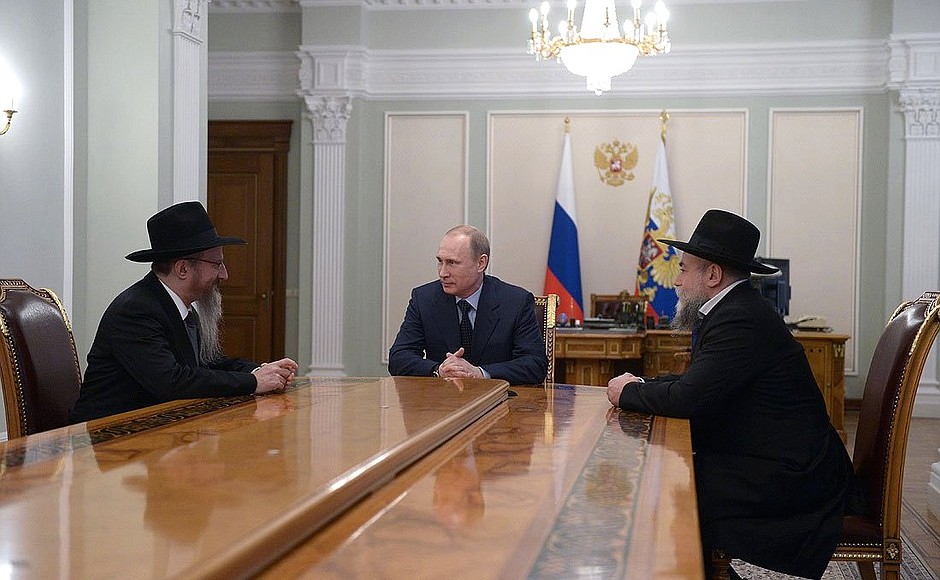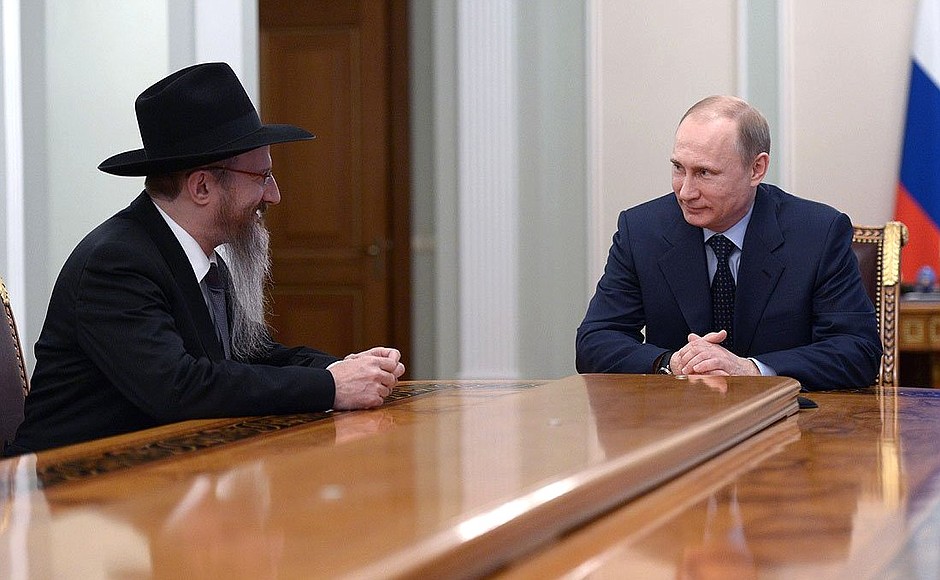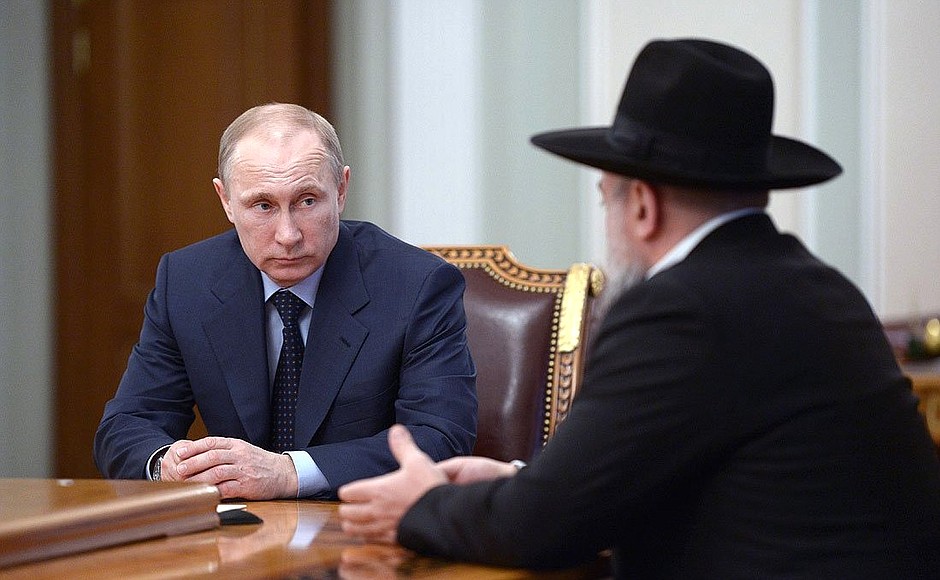Mr Putin thanked Mr Lazar and Mr Boroda for their work to strengthen interfaith harmony and noted the positive role the Russian Jewish Museum of Tolerance in Moscow is playing.
Mr Lazar and Mr Boroda told the President about the special events, in particular educational events, that will take place in different parts of the country, including Crimea and Sevastopol, to mark the Passover holiday.
* * *
President of Russia Vladimir Putin: Good afternoon.
First of all, I want to congratulate you and all Jews in Russia on the upcoming Passover holiday. How long does the holiday last?
Chief Rabbi of Russia Berl Lazar: Eight days. Over those eight days we are not allowed to eat meat or bread or drink vodka. We can only eat matzos and other kosher products. It’s a holiday with strict rules.
Vladimir PUTIN: And after these eight days?
Berl LAZAR: Then everything is allowed as usual.
Vladimir PUTIN: We will be celebrating the Orthodox Easter on April 20, and so this gives us the chance to celebrate our holidays together.
Berl LAZAR: There was always a connection between the Orthodox Easter and the Jewish Passover. The Orthodox Easter begins the first Sunday after our Passover. You can see in this how everything is interconnected and how our religions live together.
Vladimir PUTIN: I want to thank you for everything that you are doing to strengthen interfaith harmony in Russia. This is a very important part of our work together. In this respect, I want to mention once again the marvellous museum that you planned and created – the Jewish Museum and Tolerance Centre. How is work going there?
Berl LAZAR: There are plenty of visitors. Thousands of people come every week. What stands out most of all is that everyone who comes there says they liked it, found it interesting, and that it made an impression on them. We need to thank you too, because it is thanks to you that we feel at ease and at home in Russia today, and that we can enjoy the highest degree of freedom of worship.
I think this year will be the first time that Passover is going to be so widely celebrated around the country. Big public celebrations will take place in every city. People are not shy about celebrating openly anymore. Today, people are proud to be Jewish and are happy that they can celebrate these holidays together with their community.
With the museum too we see that there are many Jewish people who come. They used to be not so open or even simply didn’t know things, and now they come to the museum and say, “We didn’t know that.” For other peoples it is interesting and useful too.
President OF THE FEDERATION OF JEWISH COMMUNITIES ALEXANDER BORODA: Exhibitions representing all different peoples take place there. We have an Azerbaijani exhibition underway there at the moment. There are different art exhibitions too. Most of the visitors are young people. The average age is between 20 and 30.
The Tolerance Centre works actively with schools. We have certified lessons and the Education Department is introducing them to schools. We provide content to schools and have produced good, well-coordinated work. In particular, the Passover holiday, which is about to begin, is being celebrated throughout the whole country. We have been working actively in Crimea, in particular, on organising celebrations. Simferopol, Sevastopol and Yalta will all hold big celebration events.
Vladimir PUTIN: Are there synagogues there?
Alexander BORODA: Yes.
Berl LAZAR: Unfortunately, this kind of work is not so well developed there yet, but there are synagogues there and Jewish communities. Our task now is to expand our work and make it more open.
Alexander BORODA: As it should be in Russia.
<…>


